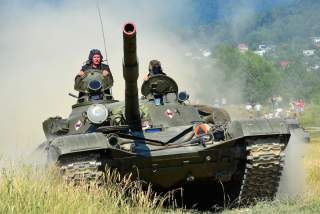Blocpolitik
What the U.S. foreign-policy elite and its allies abroad call the liberal world order is nothing more than the contemporary American bloc, like the “Free World” of the Cold War.
There is nothing in this analysis at odds with classical realism. But it suggests that the favored strategy of many contemporary American realists, offshore balancing, may be as irrelevant as the now-moribund global-hegemony strategy of the neoconservatives and neoliberals.
Offshore balancing assumes that entry into, and exit from, alliances is relatively easy. It also requires a sufficient number of major powers, not just two or three. But a world of a few immense, integrated transnational blocs is not a world of loose, easily revocable arm’s-length alliances, in which rivals periodically switch sides. Arguably, that view of world politics projects an anachronistic version of nineteenth-century continental European power politics on the less fluid world of the twenty-first and twenty-second centuries.
What if the world of the future, instead, is more like the world that existed during most of premodern history, divided among a small number of large multinational empires—the Chinese, the Persian, the Roman—which expanded until they bumped up against each other at their edges? In a world of military-industrial blocs, as in the older system of agrarian tributary empires, there could be centuries of low-level skirmishes along the frontiers without the conflicts escalating to wars of annihilation.
If I am correct, then Rip Van Winkle may even be more disappointed if he goes back to sleep now and wakes up in 2050 or 2100. By then, it is possible that power politics will have been transformed beyond recognition. But it seems more likely that the major powers, as well as their spheres of influence, will seem boringly familiar. The United States will still be the hegemon of North America, perhaps of Europe, parts of the Asia-Pacific zone and other regions as well. China will have a sphere of influence yet to be defined. And there will be smoldering flash points where these and other lesser blocs intersect. Phases of cold war among the blocs will alternate with phases of cold peace. Within blocs, there may be a high degree of free trade, investment and migration, but economic relations among blocs will tend to be conflictual and governed by the zero-sum logic of strategic mercantilism.
What about a united world of truly independent nations sharing a global free market and policed by a benevolent United States or the Security Council? Rip Van Winkle will find that world only in his dreams.
Michael Lind is a senior fellow at New America and author of The American Way of Strategy. He is a contributing editor at the National Interest.
This essay was published in the July/August 2017 print magazine under the headline “Blocpolitik.”
Image: Vintage artillery of Warsaw Pact. Wikimedia Commons/Creative Commons/@Silar

